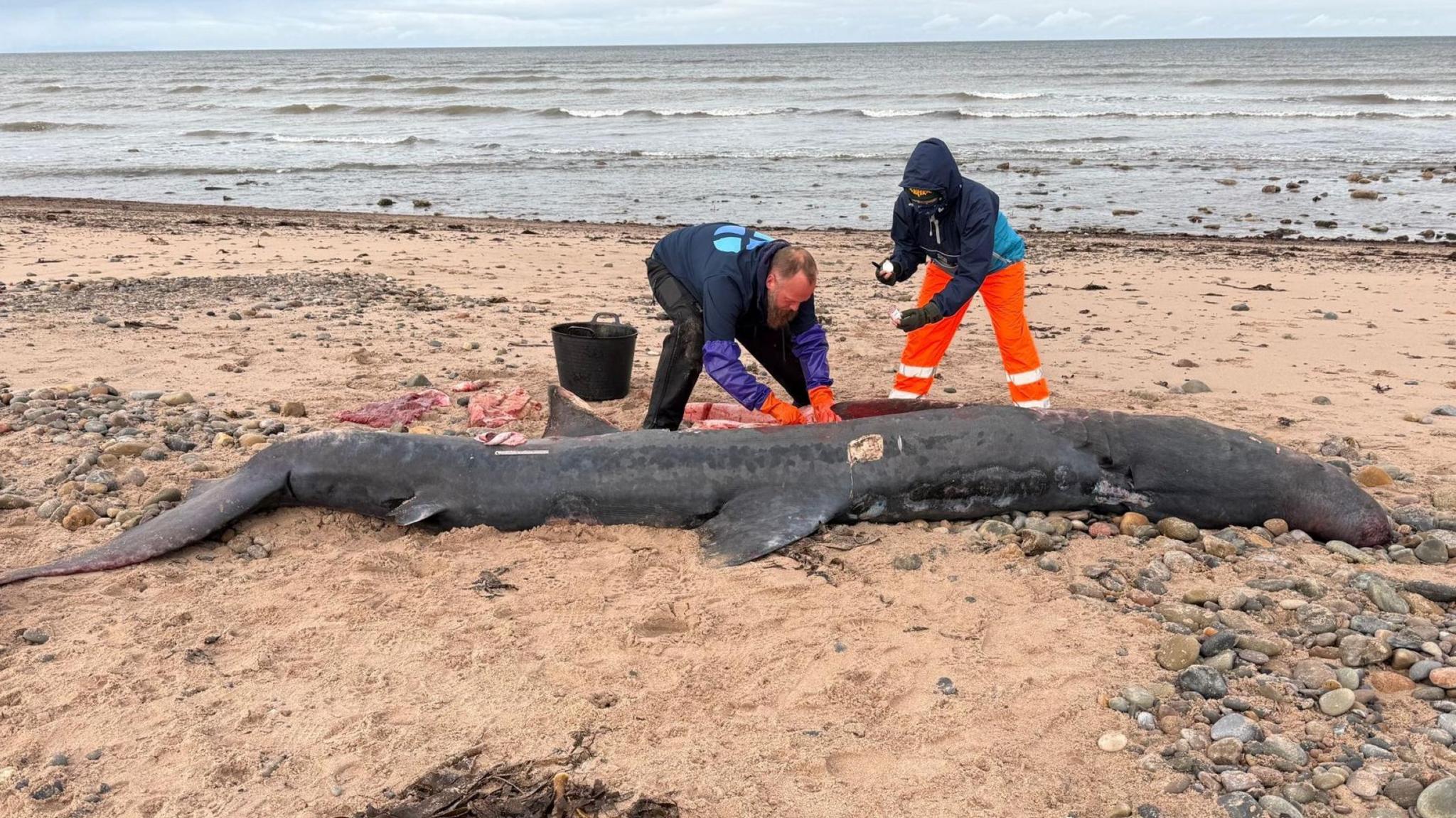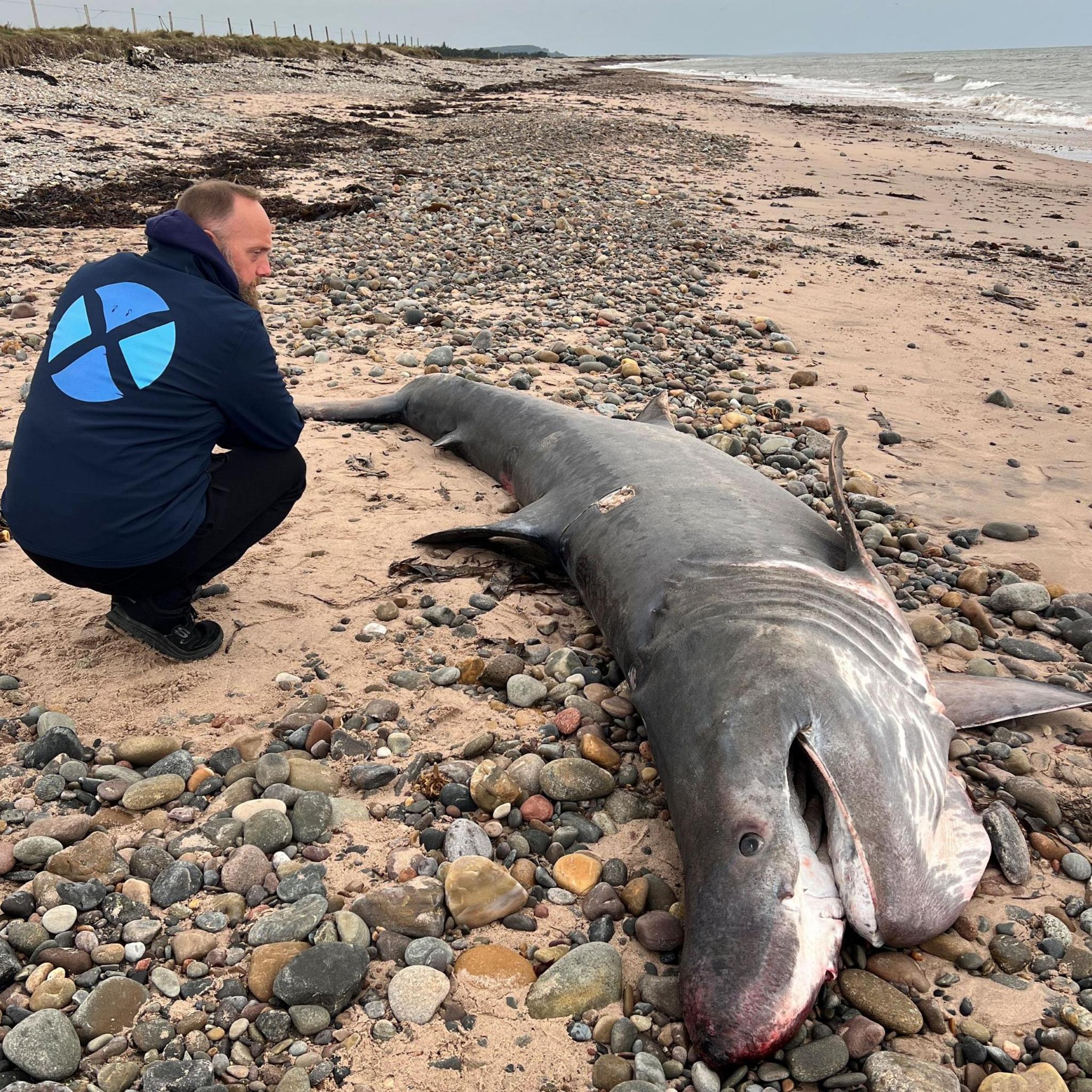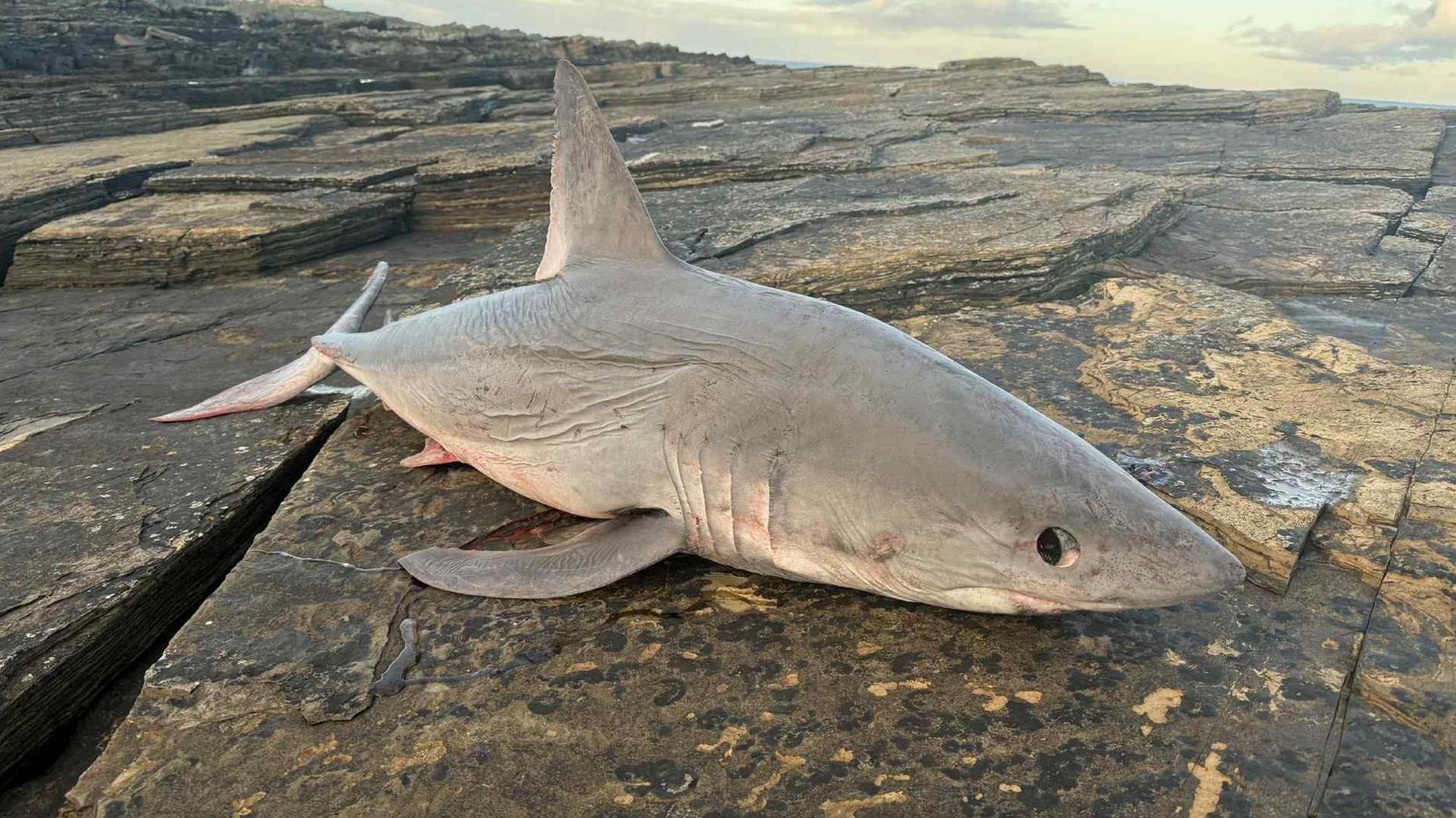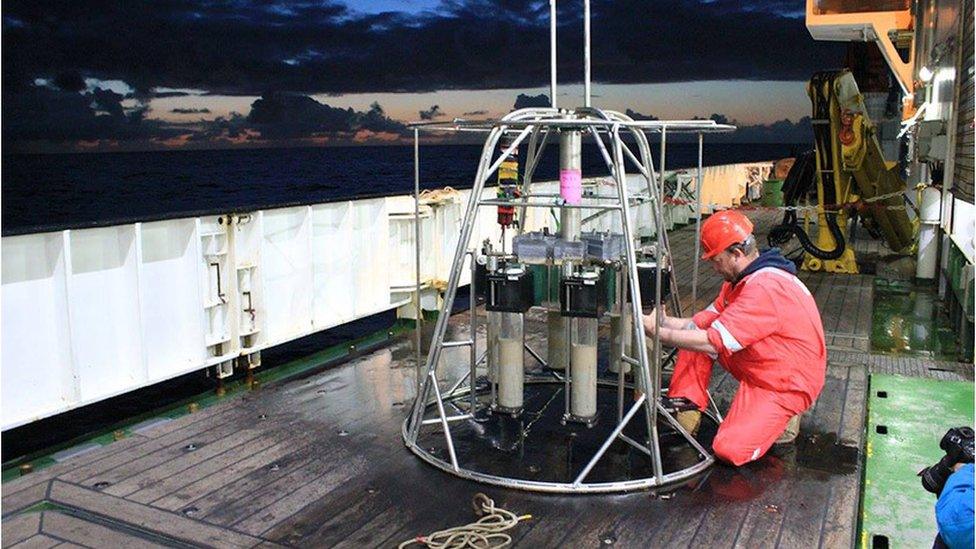Dead basking shark found with plastic in its stomach

The basking shark was examined on Saturday
- Published
A basking shark found dead on a Moray beach had eaten plastic, according to experts who examined it.
The fish, which was more than 4m (13ft) long, washed up at Portgordon, near Buckie.
Shark and Skate Scotland carried out a necropsy on Saturday and found a small piece of plastic sheet or bag in its stomach, but no obvious cause of death.
The group said the global threat to sharks was over-fishing, but localised impacts included habitat loss and pollution.

The shark was found near Buckie in Moray
Basking sharks - the world's second largest species of fish after whale sharks - gather off Scotland's west coast from May to October to breed and feed on plankton.
Shark and Skate Scotland said the shark found at Portgordon was a young male that had still to grow to its full adult length.
A spokesperson said: "There was no obvious cause of death, however, we have taken several samples which will be analysed to hopefully give more insight.
"A 3cm square piece of plastic sheet/bag was found inside the stomach of the animal, but given the amount of filtering and feeding they do in any given day, it is unsurprising that pieces of plastic will be ingested."

A porbeagle was found dead in Caithness
Shark and Skate Scotland said it was also aware of recent discoveries of a porbeagle shark and a blue shark washing ashore in other parts of north-east Scotland.
The porbeagle was found washed up on a rocky shoreline near Wick in Caithness by a couple who were out for their daily morning walk.
The blue shark was found dead in Shetland.
The spokesperson said: "We have no reason to believe these sightings are related.
"All three species are found relatively commonly around the coast of Scotland.
"Blue sharks do tend to be found farther south as a rule, but sightings up north do occur."
They said: "We have also had reports of the critically endangered flapper skate being washed in dead and one live stranding in Montrose in recent months.
"These large shark and skate species are found along the UK coast year round, they are just rarely seen. Having said that, many shark and skate species are in decline."
Mammal strandings
Earlier this year scientists said there had been an "exponential" increase in marine mammal strandings in waters around Scotland.
The number of whales, dolphins and porpoises getting into difficulty has risen from about 100 a year to more than 300 over a 30-year period.
Researchers at the University of Glasgow said possible causes included chemical, plastic and noise pollution and accidental entanglements in fishing gear.
More than 5,140 stranded marine animals were recorded in the study between 1992 and 2022.
Strandings happen when a marine animal becomes stuck in shallow water or on a shoreline. It often results in death or injury.
The study, published in Scientific Reports, external, found a steep rise in strandings involving common dolphins and baleen whales - filter-feeding species that include minke and humpback whales.
In 2018, research suggested some of the world's deepest-living sea creatures have been feeding on plastic for at least 40 years.
Scientists examined archived specimens of animals collected more than 2,000m (6,561.8ft) down in the Rockall Trough off the Western Isles.
Traces of eight different plastics were found in the stomachs of the starfish, sea stars and brittle stars.
The creatures were collected between 1976 and 2015.
Related topics
- Published7 May 2020
